“Bohemian Rhapsody” by Queen is one of the most iconic rock songs of all time, blending operatic, ballad, and rock elements into a timeless masterpiece. Its lyrics tell a mysterious and emotional story, showcasing Freddie Mercury’s genius and the band’s innovative style, making it a song that continues to captivate listeners across the global music scene.
Bohemian Rhapsody Lyrics Biography
| Released | 1975 |
| Artist | Queen |
| Album | A Night at the Opera |
| Genres | Hard Rock,Art Rock |
Bohemian Rhapsody Lyrics
Is this real life? Is this just fantasy?
Caught in a landslide, no escape from reality
Open your eyes, look up to the skies and see
I’m just a poor boy, I need no sympathy
Because I’m easy come, easy go
Little high, little low
Any way the wind blows doesn’t really matter to me, to me
Summery

The opening lines of “Bohemian Rhapsody” immediately draw listeners into a world between reality and fantasy, reflecting the narrator’s existential confusion and emotional vulnerability. Freddie Mercury’s poetic lyrics and evocative imagery set the stage for a story of guilt, fate, and introspection, making it one of Queen’s most memorable and analyzed rock classics.
Mama, just killed a man
Put a gun against his head, pulled my trigger, now he’s dead
Mama, life had just begun
But now I’ve gone and thrown it all away
Mama, ooh, didn’t mean to make you cry
If I’m not back again this time tomorrow
Carry on, carry on as if nothing really matters
Summery
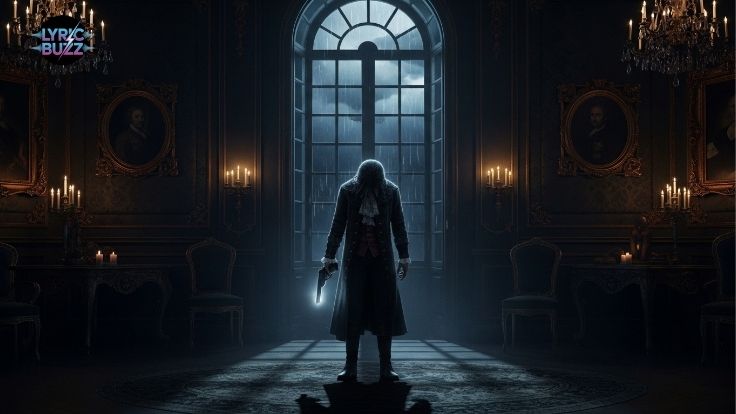
In this verse, Freddie Mercury portrays deep guilt and remorse, confessing a tragic act to his mother. The lyrics blend personal tragedy with dramatic storytelling, highlighting the song’s emotional depth and setting up the operatic tension that makes “Bohemian Rhapsody” a timeless rock masterpiece.
Too late, my time has come
Sends shivers down my spine, body’s aching all the time
Goodbye, everybody, I’ve got to go
Gotta leave you all behind and face the truth
Mama, ooh (any way the wind blows)
I don’t wanna die
I sometimes wish I’d never been born at all
Summery
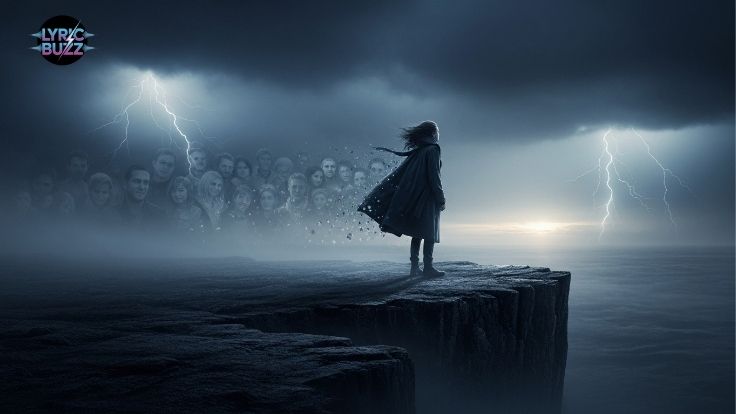
In this haunting verse, Freddie Mercury captures the raw fear of mortality and regret. The line “I don’t wanna die” reveals deep emotional vulnerability, blending existential reflection and theatrical expression. This moment in “Bohemian Rhapsody” symbolizes the singer’s confrontation with truth, loss, and the weight of his choices showing why it remains one of Queen’s most powerful lyrical performances.
I see a little silhouetto of a man
Scaramouche, Scaramouche, will you do the Fandango?
Thunderbolt and lightning, very, very frightening me
(Galileo) Galileo, (Galileo) Galileo, Galileo Figaro, magnifico
But I’m just a poor boy, nobody loves me
He’s just a poor boy from a poor family
Spare him his life from this monstrosity
Summery
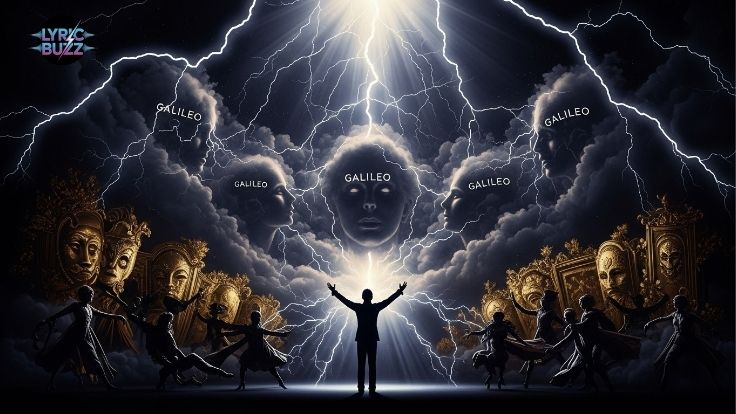
In this iconic operatic section, Queen blends theatrical drama and playful wordplay, with references like Scaramouche and Galileo creating a surreal, larger-than-life atmosphere. The narrator’s pleas as a “poor boy” mix comedy, tension, and desperation, showcasing Freddie Mercury’s genius in combining operatic storytelling with rock music, making this part one of the most memorable in classic rock history.
Easy come, easy go, will you let me go?
No, we will not let you go (let him go)
We will not let you go (let him go)
We will not let you go (let me go)
Will not let you go (let me go)
Will not let you go (never, never, never, never let me go)
No, no, no, no, no, no, no
Summery
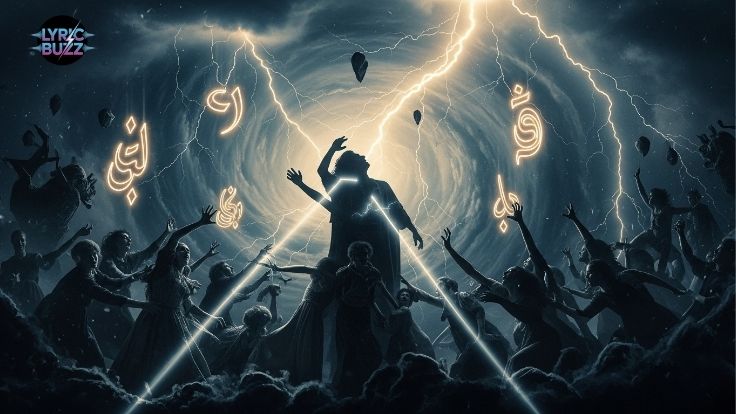
In this intense section, Queen builds dramatic tension with call-and-response vocals and operatic repetition, creating a sense of struggle and urgency. The lines “Will not let you go” echo the narrator’s conflict and desperation, blending theatrical opera elements with rock instrumentation, which highlights Freddie Mercury’s mastery of emotional storytelling in music.
Oh, mamma mia, mamma mia
Mamma mia, let me go
Beelzebub has a devil put aside for me, for me, for me
So you think you can stone me and spit in my eye?
So you think you can love me and leave me to die?
Oh, baby, can’t do this to me, baby
Just gotta get out, just gotta get right outta here
Summery
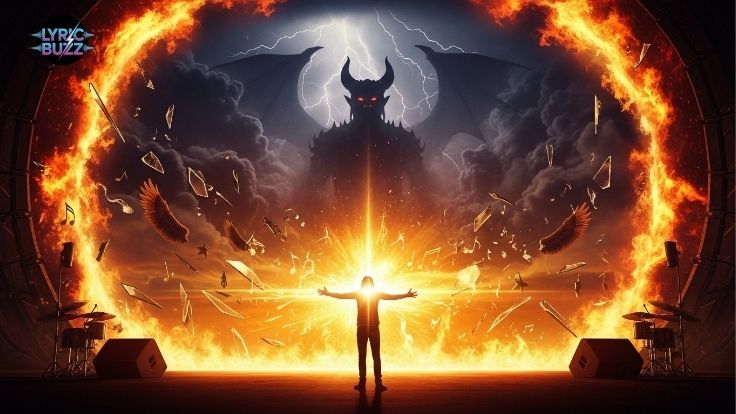
In this explosive part of Bohemian Rhapsody, Freddie Mercury delivers one of rock’s most emotional performances. The lines reflect rage, defiance, and liberation, as the narrator fights against betrayal and darkness. With soaring vocals and heavy guitar, Queen transforms pain into raw power and freedom, marking the song’s dramatic turning point.
Ooh
Ooh, yeah, ooh, yeah
Nothing really matters, anyone can see
Nothing really matters
Nothing really matters to me
Summery

In the final lines of “Bohemian Rhapsody,” Freddie Mercury closes with haunting simplicity “Nothing really matters.” This moment captures the song’s deep sense of acceptance and release. It reflects freedom from guilt, fate, and pain, leaving listeners with a timeless reminder of life’s fragile yet beautiful uncertainty.
Frequently Asked Questions
1. What is the meaning of Bohemian Rhapsody lyrics?
The song explores themes of guilt, fate, and existential reflection, blending storytelling with operatic and rock elements.
2. Who wrote Bohemian Rhapsody lyrics?
The lyrics were written by Freddie Mercury, showcasing his genius in combining drama, emotion, and musical complexity.
3. When was Bohemian Rhapsody released?
It was released on October 31, 1975, as part of Queen’s album A Night at the Opera.
4. What album features Bohemian Rhapsody?
The song appears on Queen’s classic album A Night at the Opera, known for its innovative rock and operatic style.
5. Why is Bohemian Rhapsody so famous?
Its multi-section structure, memorable lyrics, and Freddie Mercury’s vocals make it a timeless rock masterpiece.
6. What genres does Bohemian Rhapsody belong to?
It blends rock, progressive rock, and opera, making it one of Queen’s most unique and influential songs.
7. What does “Nothing really matters” mean in the song?
This closing line reflects acceptance, release, and existential insight, leaving a lasting impression on listeners worldwide.
Conclusion
“Bohemian Rhapsody” by Queen remains a timeless masterpiece that blends operatic drama, rock energy, and poetic lyrics. Freddie Mercury’s storytelling captures themes of guilt, fate, and selfreflection, making it one of the most analyzed and celebrated songs in classic rock history. Its innovative structure and emotional depth continue to resonate with fans around the world, solidifying Queen’s legendary status.

Music lover and content writer who turns lyrics into stories 🎶✍️










